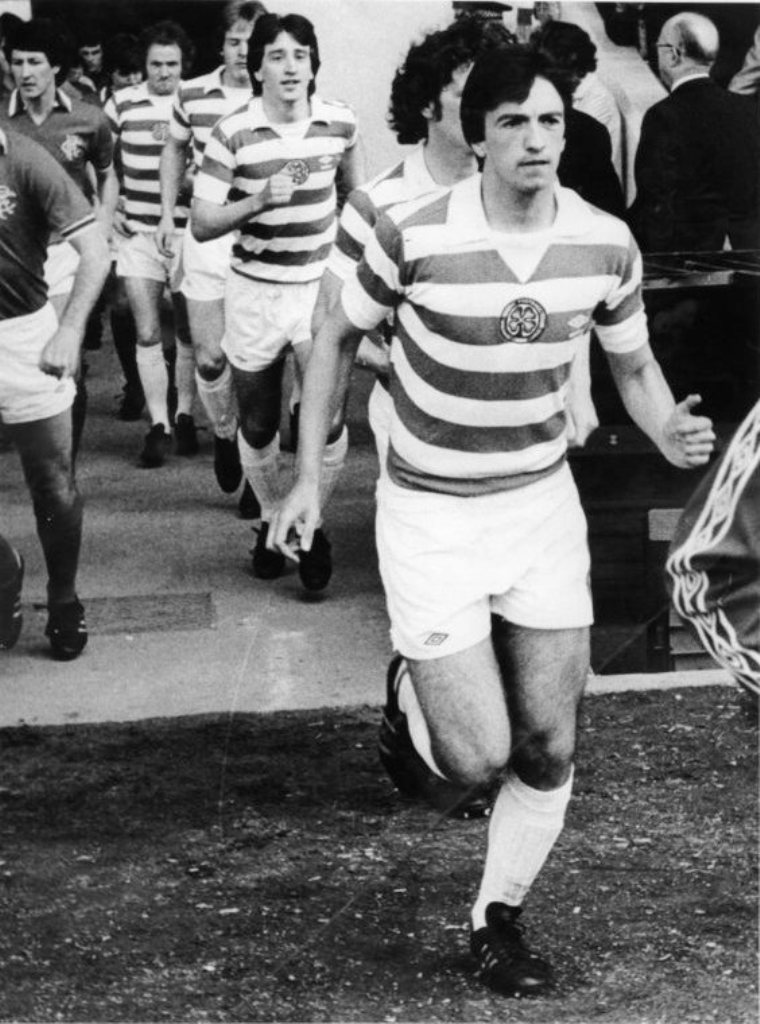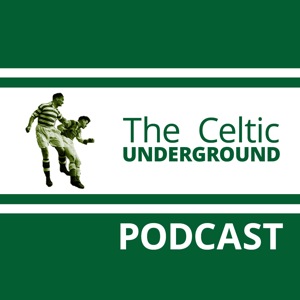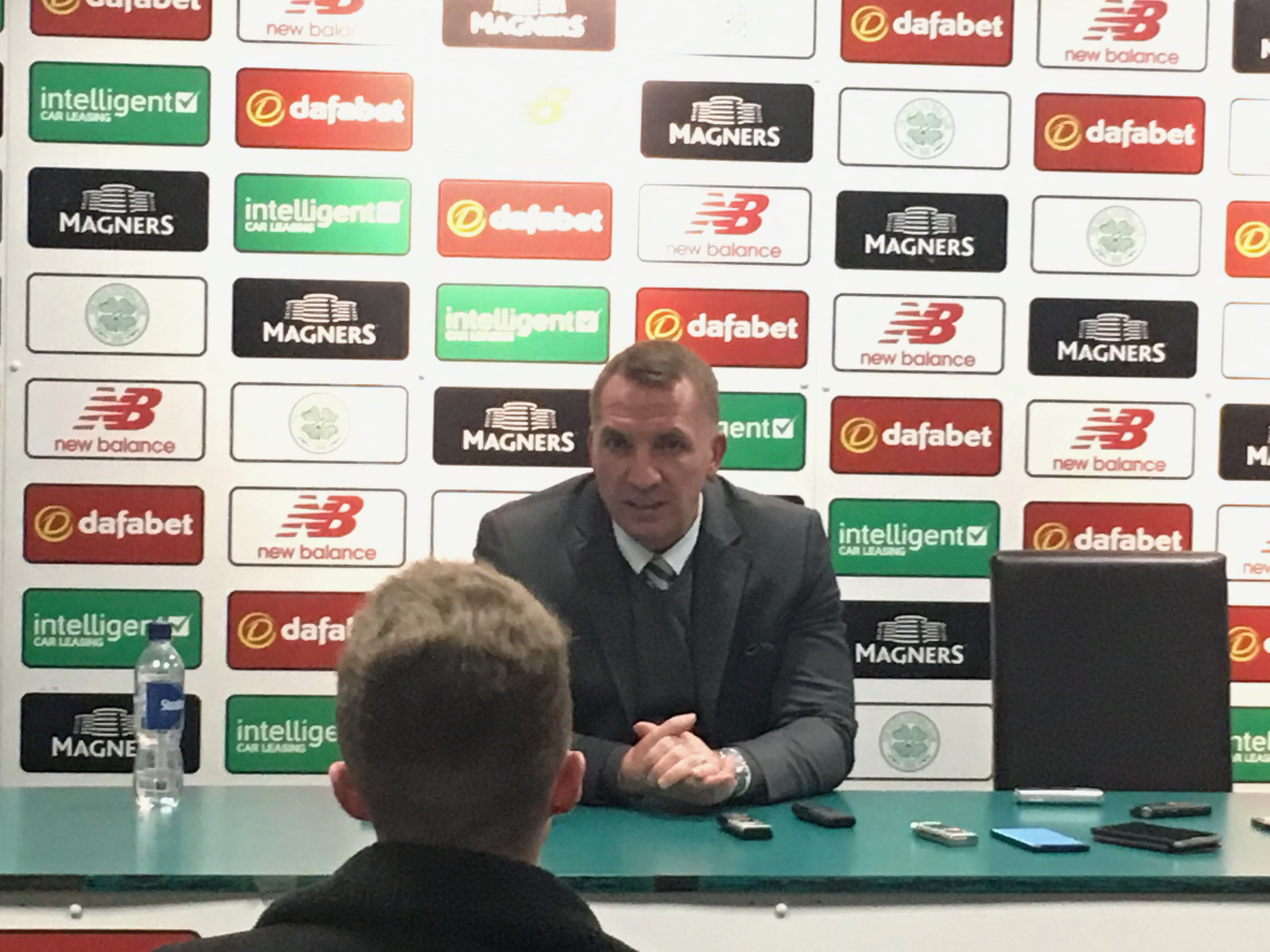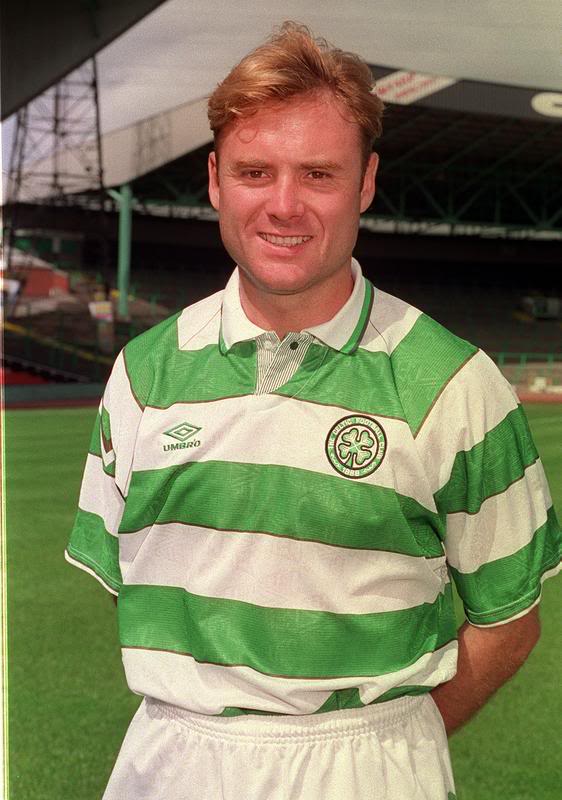In the spring of 1978, Jock Stein featured a number of young signings from the junior leagues in Celtic’s first team. Amongst them was Alan Sneddon from Larkhall, Brian Coyne from St Roch’s, and Mick Conroy from Port Glasgow juniors.
Conroy’s debut was a most forgettable game at Easter Road when Celtic went down by 4-1 to Hibs on a day when Celtic fans blackened the club’s reputation by invading the field of play before being herded off by the police, ably assisted by an angry Jock Stein. However, young Conroy had the satisfaction of scoring Celtic’s goal an showed a great deal of heart that had been sadly missing in the team that season.
In the summer of 1978 Billy McNeill replaced Stein as manager and immediately pinned his hopes on a number of young players such as Roy Aitken, Tommy Burns, George McCluskey and Mick Conroy. Mick was a regular during that season and went down in the annals of Celtic history as part of the legendary Celtic team who defeated Rangers 4-2 with ten men in May 1979. This was The Celts’ final league game of the season and that night they lifted the league title in the most dramatic circumstances imaginable.
What’s not so well known is that young Mick scored the winning goal in Celtic’s penultimate game at Parkhead, against relegated Hearts, when they narrowly won by 1-0. Had it not been for that goal then the ‘4-2 game’ would have been irrelevant and Mick was an unlikely hero that night when the Celtic forwards were well off form.
Season 1979-80 saw Mick hit by injuries which kept him out for long spells of that season. In February he suffered a freak eye injury after a piece of red ash became lodged in his eye and there were serious concerns for his sight before doctors managed to resolve the problem.
Although he missed the glamour ties against Real Madrid in March 1980, Mick was available for selection for the Scottish Cup final against Rangers in May. Celtic were dealt a severe blow when first choice centre halves, Roddy MacDonald and Tom McAdam, were ruled out by injury and suspension, respectively. Young reserve defender, Jim Casey, was earmarked to play, yet he too suffered a freak injury just days before the game to keep him out also.
Billy McNeill turned to Mick Conroy in desperation and the young Celt agreed to play in the number 5 shorts, a role he had never played in before at any level. He was viewed as Celtic’s weak link beforehand but the newspapers referred to Mick as a ‘stand-in stand out’ as Conroy and Roy Aitken formed a defensive barrier to keep Rangers at bay and help Celtic to a 1-0 win. Many observers rated Mick as Celtic’s best performer on the day and only the brilliance of Danny McGrain denied him the sponsors’ man of the match award.
Mick suffered another injury in late 1980 and by the turn of the year Celtic were well behind Alex Ferguson’s, Aberdeen, in the league race. In January, Billy McNeill changed the side and brought Conroy in for an extended run in the team. This coincided with Celtic playing some great football and going on a long, unbeaten run which culminated in the Celts winning the title on a cold but emotional night at Tannadice in April 1981.
Around this time Roy Aitken was making a reputation for himself with his charging runs down the centre of the field from defence. On such instance resulted in a spectacular goal against Rangers in a 3-1 win in February 1981 but it should be noted that it was Mick Conroy who cleverly provided defensive cover for ‘The Bear’ went he went on those memorable, marauding runs.
Season 1981-82 saw Mick make fewer appearances than in previous seasons. Celtic had a settled midfield of Dom Sullivan, Tommy Burns and Murdo MacLeod who were the inspiration behind the second successive title win in May. When the prodigiously talented Paul McStay came on the scene in early 1982, Mick was further down the pecking order, yet it was still a surprise when he moved to Hibs in September 1982 for a £40,000 fee. Mick was a popular figure amongst the supporters and many fans, at that time, cast doubt on Billy McNeill’s judgement for allowing him to leave.
Mick Conroy was a strong tackling midfielder, who was a fine passer, and his contribution to Celtic’s successes between 1979 and 1982 should not be under estimated. These days Mick would have been ideal ‘holding midfielder’ material and there is no doubt that his talents would have been more appreciated in the modern game.





